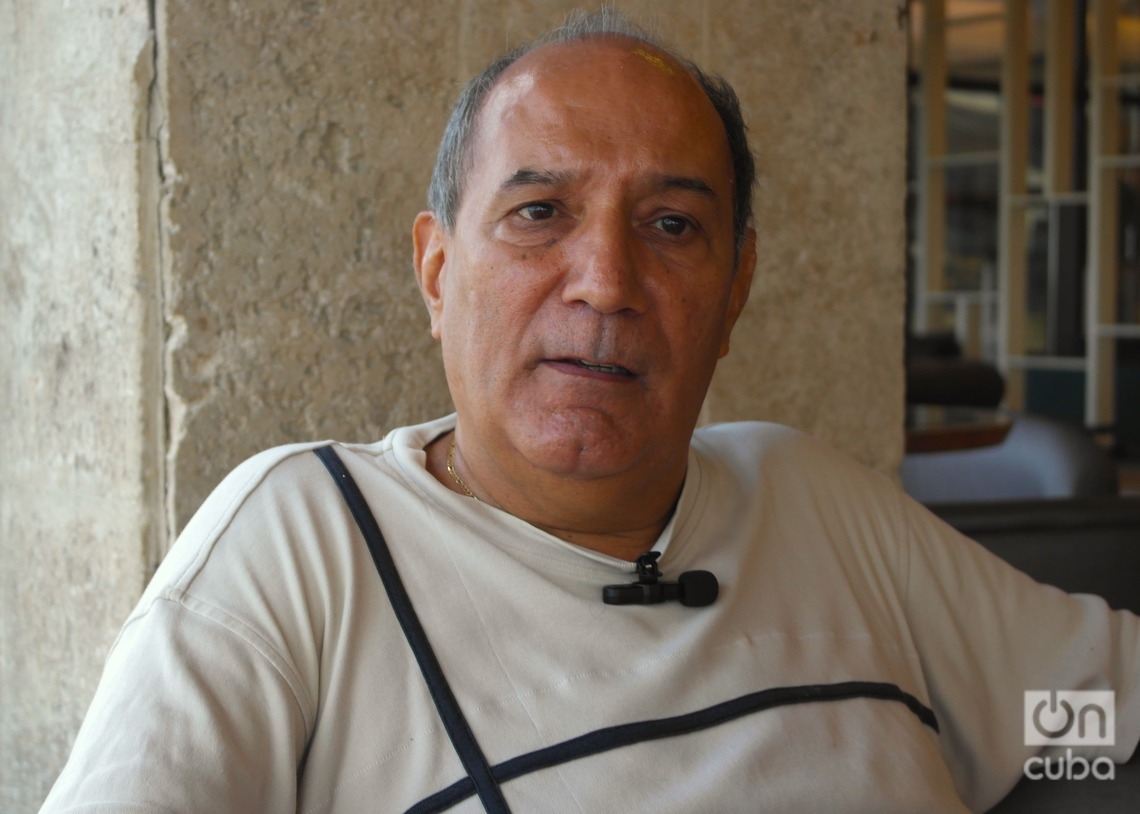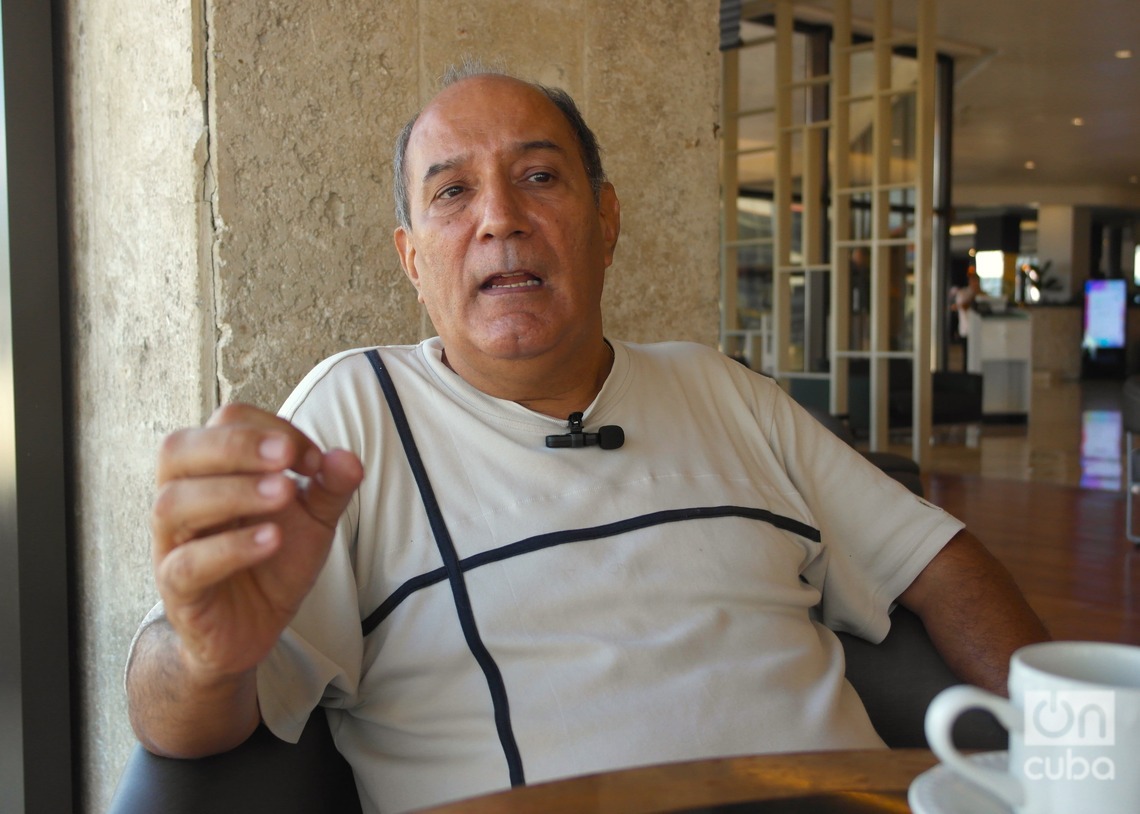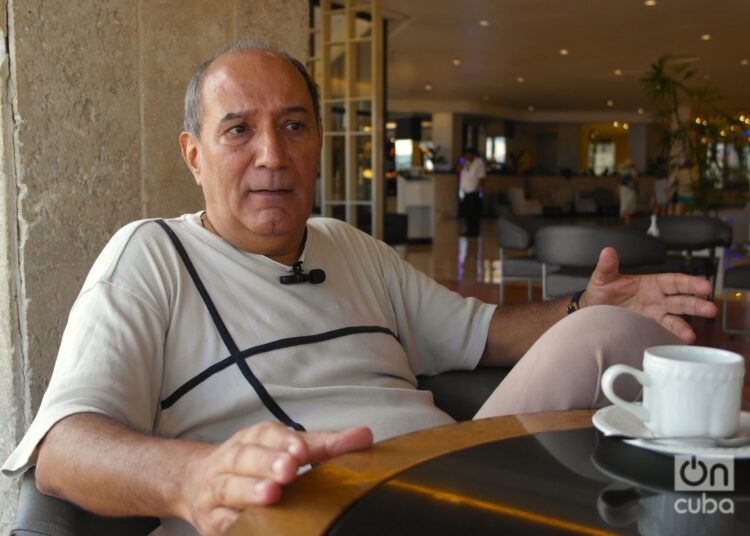In recent months, the word macroeconomics has spread among Cubans like never before, following the announcement, at the end of 2023, of a government program to set the island’s battered economy back on course. The plans are kept almost secret and only notes from official meetings and speeches in parliament are revealed.
However, some Cuban economists look with suspicion at the new attempt to rescue Cuban finances, which fell into the red last year, with a 1.9% GDP decrease, part of a trail of little or no economic growth.
The aforementioned is at least the fourth government program since 2019 that seeks to get out of the crisis or promote productive development. The previous ones, including the failed Reorganization Task in 2021, have not obtained the expected results. According to some experts, this is due to the partial application of the reform measures or a series of actions without the established order from the academy, among other objective causes.
University of Havana professor and Doctor of Economic Sciences Antonio Romero joins several colleagues’ claim that Cuba needs a structural transformation of the economy that, in his opinion, had a real expression with the Economic and Social Policy Guidelines, approved in 2011 by the Communist Party of Cuba (PCC).
However, the academic at the Center for Research in International Economics and former dean of the Faculty of Economics considers that there has been no political will or consensus for the implementation of this programmatic document.
The problems of the Cuban model remain more than a decade later and are the so-called macroeconomic imbalances that prevent the development of the country. In an interview with OnCuba, Romero assesses the impact of these conditions and evaluates the effectiveness of the government’s projections to address them.
What is macroeconomics and why is it important to understand the Cuban crisis?
There are three levels to make an economic analysis: macroeconomic, mesoeconomic, and microeconomic. The first is the most general; it refers to the main balances that must occur in a national economy and that are fundamental for transactions, growth, the drive of economic agents, and everything related to production, distribution, exchange, and consumption to occur appropriately.
Mesoeconomics studies the branches and sectors of the economy. And microeconomics refers to specific markets, specific economic agents; enterprises, and products.
For a long time, several economists have said that Cuba has accumulated important macroeconomic imbalances and, therefore, it is necessary to design and implement a coherent, systemic, comprehensive macroeconomic stabilization program that gradually eliminates these major problems. If this does not happen, it is very difficult to achieve economic growth and development.
In December, the prime minister announced the implementation of a set of measures that have been understood as a macroeconomic stabilization program. What is your assessment of this?
I have my critical opinions regarding the macroeconomic stabilization program.
Very little progress has been made in reducing the fiscal deficit of 18.5% of GDP, which is an essential component.
When people talk about the need for fiscal balance, the emphasis is on increasing tax revenues. In a situation of stagflation, which is what Cuba is experiencing, with long-standing economic stagnation, achieving a reduction in the deficit by relying heavily on revenues is practically impossible.
Here, economic activity is very depressed. How can we generate enough to increase the level of taxes collected by the State in line with the level of fiscal deficit?
An essential component of the stabilization program must be the reduction of public sector spending. I know that this is very difficult, especially in a country like ours, due to the nature of our model. Of course, in Cuba, we cannot expect to advance in terms of macroeconomic adjustment based on reducing spending on education, health care, assistance, and social security.
It’s necessary to look at the other budget accounts. There are two that have to do with the central administration of the State, the bureaucratic apparatus. In all countries, there must be regulatory institutions, but Cuba needs to reduce spending here; in addition, there is an excess of regulatory institutions.
On the other hand, a significant part of budget expenditures goes as transfers to state-owned enterprises that are loss-making.
Furthermore, macroeconomic stabilization must be accompanied by changes in terms of monetary and exchange rate policy. It is doubtful that the economy will be stabilized with the current exchange rate disparity.
Likewise, a gradual process of de-dollarization of the economy must be carried out. The prime minister insists that dollarization must be emphasized in order to then de-dollarize the country, which, for me, is a contradiction.
To the extent that economic stagnation continues, the Cuban peso loses purchasing power and, therefore, the natural response of agents, including consumers, is to take refuge in another safer currency. The dollarization of the economy, in any country, implies a loss of economic sovereignty.

Another related issue is that in recent years the fiscal deficit has been financed with monetization, which means that the Central Bank is in a continuous process of inorganic money emission to close the gap the State has, with a lot of spending and not enough income.
Lastly, a radical transformation of central planning is required as the mechanism par excellence for regulating our economy. I say this now, but the PCC already said it in 2011.
What effects do these and other imbalances have on people’s lives, beyond macroeconomics?
One of the fundamental elements that explains the extremely high inflation, the extremely high prices, and the deterioration of the real income of the population is the enormous fiscal deficit that is being financed by issuing money. This money enters into circulation in conditions in which supply is low and demand is very high.
Cuba also has a very large imbalance in foreign trade. It has very little capacity to export goods and an urgent need to import to guarantee the minimum conditions of economic and social reproduction in the country. Given the permanent shortage of foreign currency, what is done is to allocate it administratively and the State determines what is a priority. That is why there is rarely foreign currency for anything and the deterioration in infrastructure is seen, even in certain social services.
On the other hand, there has been no transformation in the export structure of merchandise. Products with very low added value are still being exported, despite the investment in developing a qualified workforce. On the other hand, we import everything, but in a very special way, with a high concentration level, in food and fuel.
This has to do with a major problem in the productive structure of the country. There is a decapitalization of the productive apparatus, including agriculture, but also manufacturing. This brings with it a very low capacity to substitute imports.
The participation of new economic actors implies a change in the relationship of productive forces, with an impact on the economy. What is your opinion of the opening to the private sector?
The most important thing that has been done in recent years, in terms of economic policy in the country, was the decree law that gave legal status to private micro, small and medium-sized enterprises.
It was a very important step, a revolutionary one, a step in the right direction; not without prejudices, because it broke many patterns. Still, in the ideological DNA of most of the Cuban establishment, the non-state is anti-system. The problems of the Cuban economy will not be solved until we have completely eradicated that idea.
What are we seeing now, unfortunately? Above all, since the prime minister’s intervention in the last session of the National Assembly of People’s Power, is that they are trying, by all means, to stop the advance that the non-state sector has had, which was unusual. In just two and a half years, the Cuban business panorama began to change, with all the criticism that can be made of it.
Without a doubt, it changed, with many problems, which were not associated per se with the sector itself that began to emerge, but with economic policy and with inconsistencies of the government; for example, the absence of a foreign exchange market to which to go to obtain foreign currency or a market for national inputs.
However, there are half-way readings of the facts. When the new restrictions were being discussed, the elimination of certain benefits that the sector had, it was reported that the tax benefit for the first year was being eliminated because prices had not fallen. It is just that people do not understand how prices work in an economy and they also do not understand that prices do not work in an isolated way.
You can have that tax benefit, which is common in many countries, but if there is a level of depreciation of the national currency and, therefore, to acquire dollars to import inputs the cost of importing is multiplied two or three times, it is impossible to reduce prices.
Now with this change, supposedly trying to discipline the non-state sector, what there will be are more negative effects than the positive ones that are sought.
There is no international experience, nor has there ever been in Cuba, that, with administrative mechanisms, with limits, with profit margin controls, prices are reduced. Instead, it will generate greater shortages, scarcity and finally the black market is stimulated.
Do these measures favor macroeconomic stabilization?
What I see is that there is a total lack of understanding of what the dimension, depth, and meaning of macroeconomic stabilization should be and, of course, there is very little structural transformation. We are at a disoriented moment. It is incomprehensible that the priority is to reduce and try to control inflation levels and, instead of going to the causes, we end up doing the supposedly easiest thing, which is to cap prices, cap profit margins. That is not going to solve anything.
With MSMEs, with the national private sector, the same thing will happen as happened with foreign investment. At first, it was a necessary evil. It was not liked, but it had to be accepted because real socialism ended, and foreign investment guaranteed technology, capital, and the market. Then the concept changed and it was said that it was complementary to national investment. And now it is said that it is essential.
MSMEs started as a necessary evil. They gained momentum and now they want to stop it. They will end up being complementary and will ultimately be essential for Cuba to move forward.

It is also essential to have a competitive, efficient state sector, but it cannot be the one we have now. A state-owned state sector, but that is open to concessions to be managed by the private sector. That is legitimate.
I do not believe that Cuba’s economic policymakers are obtuse or anything like that. There is clearly a very important level of prejudice or, what is the same, that political-ideological dogmas are preventing progress in terms of the economic transformation that the country requires.
What happens if dogmas prevail over economic rationality?
Dogmas are being imposed, but they are not eternal. I believe that, unfortunately, they make us waste time. That can be dangerous. The worsening of the economic situation, beyond the levels we are at, can generate social conflicts that we had not seen before.
It can generate — which is very worrying, although it is a daily trickle — an acceleration of the massive flight of young capital from the country.
The labor force is the economic resource par excellence, it is the most important. So, there may be a marked acceleration of the migratory flow, which is already having impacts, impacts that are not only economic, they are social impacts on the life of the Cuban family, very significant.
All this must be analyzed in an uncertain international context, with a possible return of Trump to the U.S. presidency. I hope not, but nobody can rule it out. It would be a very negative environment for relations with the United States.
But I think we will survive; we are very resilient.











Good interview and an intelligent man. Cuba must change, the hour glass is about empty.